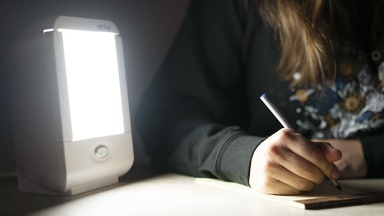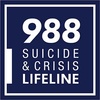Main navigation
Articles
Learn to be self-compassionate
Tips for returning home at break
Tools for a fresh start
The finish line of the semester
Tips for good sleep
A short list of tips to help build healthy habits and prioritize getting a good night's sleep.
More like Kason, Less Like Pete: Rethinking Resilience & Tears
What if resilience isn’t about suppressing emotions—but rather allowing ourselves to feel them, process them, and then move forward?
Webinars
Unhook from Imposter Syndrome
If you’ve ever felt like an imposter, you’re not alone. 7 in 10 adults experience feelings of “not good enough” at some point in their lives. View this webinar to learn more about imposter syndrome and discover tips to help you work through these thoughts and feelings.
Light therapy

Light therapy is a process of sitting in front of artificial light for 30-60 minutes a day. This process can help with improving certain mental health symptoms. This includes improving mood and energy levels, enhancing focus and concentration, boosting productivity and alertness, and supporting healthy sleep cycles.
Light therapy is to be done with eyes open, 6-24 inches from you at an angle; not looking directly at the light. You can engage in other sedentary activities while the light is on; such as reading, studying, on your computer/phone, etc. There are 3 customizable settings for brightness, and you should work to increasing to 30-60 minutes a day. It may take up to two 2 weeks to notice benefits and should be used consistently during this time. Light therapy is not a replacement for mental and physical healthcare.
Business students can check out a “Happy Light” light box for 3 weeks at a time. Additional lights can be reserved through Student Wellness.
Additional resources
Tippie resources
University resources
Get help now

If you are experiencing an emergency or crisis, call 911 or contact:
GuideLink Center | Adult Mental Health and Substance Use Services: 319-688-8000
CommUnity: 1-855-581-8111
UIHC Emergency Treatment Center: 319-356-2233
UCS at 319-335-7294 between 8:00 a.m. and 5:00 p.m. to request a quick access or same-day appointment.
UI Support & Crisis Line - We're here for you any time, via chat, phone, or text. In partnership with CommUnity Crisis Services in Iowa City, the University of Iowa provides around-the-clock mental health crisis and support for all students.
